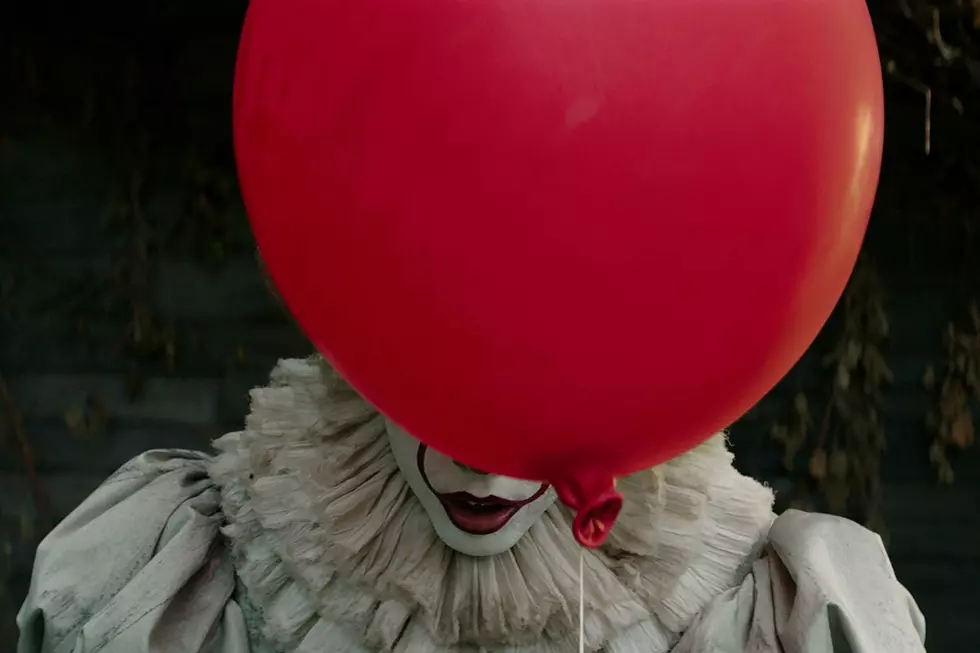
Cary Fukunaga Explains Why He Left Stephen King’s ‘It’
Ever since Cary Fukunaga parted ways with New Line on the new adaptation of Stephen King’s traumatic classic It, rumors have swirled about what caused the departure. Some reports suggested that the director clashed with the studio over the budget, while others — fueled by rumors about Fukunaga’s problems with Nic Pizzolatto on True Detective — speculated that the director was simply too difficult to work with. In a new interview, Fukunaga sets the record straight.
It doesn’t appear that Fukunaga is giving us a generic, gilded explanation for the press — in a new interview with Variety, the director goes into great detail about his departure. He had originally planned on dividing King’s massive tome into two films, one focusing on the main characters as children, and the other centering on the resurgence of evil in their adulthood. Fukunaga co-wrote the screenplay with Chase Palmer and had been developing the project since 2012.
As Fukunaga explains, the issues with New Line had nothing to do with budget — they simply had different ideas about what kind of movie It should be, with the studio wanting something more conventional:
I was trying to make an unconventional horror film. It didn’t fit into the algorithm of what they knew they could spend and make money back on based on not offending their standard genre audience. Our budget was perfectly fine. We were always hovering at the $32 million mark, which was their budget. It was the creative that we were really battling. It was two movies. They didn’t care about that. In the first movie, what I was trying to do was an elevated horror film with actual characters. They didn’t want any characters. They wanted archetypes and scares. I wrote the script. They wanted me to make a much more inoffensive, conventional script. But I don’t think you can do proper Stephen King and make it inoffensive.
New Line is often known as “the house that Freddy built,” owing its success largely to the Nightmare on Elm Street franchise. The studio’s horror offerings are largely formulaic, but they’ve had great success with playing it safe. Fukunaga goes on to explain the discrepancy between his vision and the studio’s goals:
The main difference was making Pennywise more than just the clown. After 30 years of villains that could read the emotional minds of characters and scare them, trying to find really sadistic and intelligent ways he scares children, and also the children had real lives prior to being scared. And all that character work takes time. It’s a slow build, but it’s worth it, especially by the second film. But definitely even in the first film, it pays off.
It was being rejected. Every little thing was being rejected and asked for changes. Our conversations weren’t dramatic. It was just quietly acrimonious. We didn’t want to make the same movie. We’d already spent millions on pre-production. I certainly did not want to make a movie where I was being micro-managed all the way through production, so I couldn’t be free to actually make something good for them. I never desire to screw something up. I desire to make something as good as possible.
That’s entirely fair. Fukunaga had a clear vision for It and — like most dedicated creatives — refused to compromise to make what he felt was a lesser product. Contrary to previous reports, New Line is now seeking a writer to start from scratch on a new screenplay, which is also good news since Fukunaga and Palmer’s draft deserves to be adapted the way they intended. Mama helmer Andres Muschietti has been tapped to direct, and will likely give New Line the sort of conventional horror film they want. Will it be as creatively charged and unnerving as Fukunaga’s version? That remains to be seen, but with New Line having such a firm grasp over the project, it seems doubtful.
For his part, Fukunaga is relieved that New Line is starting anew on the screenplay, and reveals that King himself approved of one of his earlier drafts:
We invested years and so much anecdotal storytelling in it. Chase and I both put our childhood in that story. So our biggest fear was they were going to take our script and bastardize it. So I’m actually thankful that they are going to rewrite the script. I wouldn’t want them to stealing our childhood memories and using that. I mean, I’m not sure if the fans would have liked what I would had done. I was honoring King’s spirit of it, but I needed to update it. King saw an earlier draft and liked it.
It’s kind of a bummer that we’ll never know what Fukunaga’s It would have been like, but if much of the screenplay development came from his own life experience, we could see little bits and pieces of it in his future work.
More From ScreenCrush









